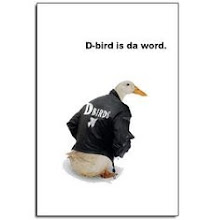Helene Blowers has a thought-provoking entry on her blog, Library Bytes, about e-books.
Here's just a snippet:
When I hear folks talk about the future of the book and wonder how libraries with thrive with this new digital age, I can’t help but think that we’re being short sighted when we only talk about the digital book’s impact to reading and the miss the greater opportunity that this format can provide, which is the networked creation and sharing of new knowledge.
Reading at its core is a consumption activity that at it’s best is a solitary pursuit. When we read, we consume and amass someone else’s knowledge and stories. For many of us it’s an escape from our own day-to-day by providing the ability to jump inside someone else’s head. The jump from print to digital actually doesn’t change any of this. Reading is still reading, an activity centered on the consumption and transfer of knowledge.
However, when I think about the book as digital format, I see a much bigger perspective unfolding. Not only is knowledge no longer bound to its physical format, it’s no longer bound as medium designed primarily for consumption. With digital formats offering the ability to connect with other readers (consumers you might even say) over networked platforms, the consumption of knowledge can actually become a participatory activity resulting in the creation and sharing of new knowledge.
But you really should go over there and read "Future of the book is not a container question" in full. Helene's blog is one I regularly read and from which I always take something new. Will Richardson has an article on 'cloud books' here - he's another blogger worth reading regularly.
What I wonder, about 'books' one can read where others have commented, where the text is not only the author's, but that plus the input of others, is whether I want the input of others... speaking for myself, I'm not ackershully expecially interested if someone says, "darcy is COOL" in the marginalia of an 'unbound' e-copy of P&P. Maybe with nonfiction it could be different. Although I was involved in an online library conference a while back, and the comments of other participants on the presentations there didn't seem, to me, to add much to my experience of it - no offence meant to other participants. And what if I'm reading some fabulous suspenseful and some spoilsport reader of the same e-copy has commented and gives away a key plot point? How do you choose which comments to accept/see?
Maybe it's like graphic novels - I just haven't got them yet, they seem to me less subtle, slower, less engaging than prose/word books. Of course I have them in the library, and they have their mad enthusiasts, and that's all well and good.
If "we read to know we are not alone" (CS Lewis) then I'm still not sure where my own boundaries are.
Cheers
Ruth
Subscribe to:
Post Comments (Atom)






















No comments:
Post a Comment